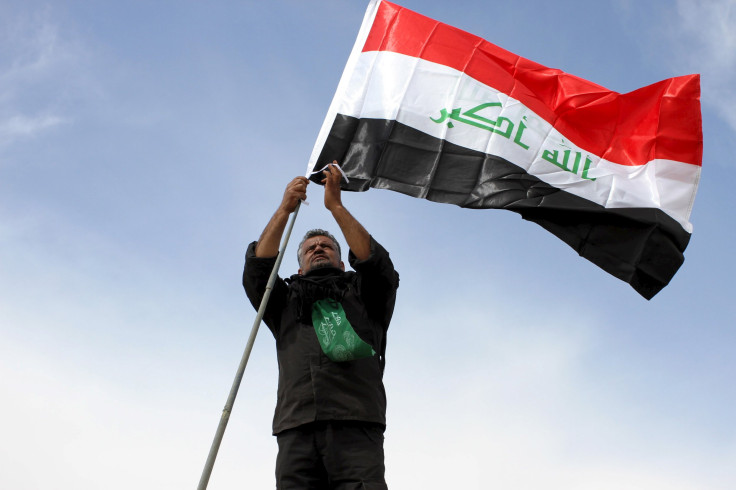Tikrit Still Not Liberated, ISIS Remains Inside

TIKRIT, Iraq — Despite major advances made by Iraqi forces here Thursday and hopeful statements from leaders on the battlefield, the Islamic State group is still active in the center of the city and there are perhaps hundreds of fighters still inside. The city has not been completely liberated.
After nearly a week of scaling back the ground offensive against the Islamic State group, also known as ISIS or ISIL, the Iraqi security forces and elite battalions in the volunteer militias bombarded the center of the city Thursday. Iraqi security forces captured several small streets within Khaladeeya, a neighborhood next to the main hospital where the militant group had been stationed.
“This neighborhood is the most dangerous part of the whole city,” said Salem Nazher Jarim, a leader of one of the largest southern Shiite battalions in Hashd al Shabi, also known as the Popular Mobilization Committee, a group of volunteer fighters. “There were 75 ISIS fighters there when we started to move in. Now, there are maybe half left.”
With the capture of some areas in Tikrit Thursday, the leaders of Hashd al-Shabi seemed confident that ISIS was on the edge of defeat. Their fighters, when entering the battle, blasted music and sang “now we go to Mosul.”
“The fighting is almost done,” Hadi al-Amiri, leader of the Iran-backed Badr brigade, said in an interview here on the front lines Tuesday. “Maybe tomorrow we will be able to go all the way in.”
Even the Iraqi Prime Minister Hader al-Abadi said Tikrit had been captured by Iraqi security forces. But the sound of artillery fire could still be heard on the front lines late Tuesday night and tanks continued to roll in and out of the city as soldiers switched shifts. At least four ambulances rushed from the front lines to medical clinics in Tikrit University to tend to wounded soldiers.
On Wednesday, the Iraqi forces were still far from liberating the entire city. Some sources in the Iraqi security forces say that ISIS still occupies 20 square miles of the city and that the battle could go on for months.
The battle for Tikrit, a city just over 100 miles north of Baghdad and the home town of ousted dictator Saddam Hussein, has dragged on for nearly a month. ISIS captured the city in June and last month the Iraqi security forces lead an invasion to retake the city. It was the first major offensive launched by the Iraqi forces to retake a city captured by ISIS.
Since then, the Iraqi forces have remained on the outskirts of the center of the city in military bases because the Sunni militant group has littered the ground with improvised explosive devices and set up dozens of sniper positions. Prime Minister Haider al-Abadi last week requested U.S. airstrikes to help clear the town and prevent casualties in the Iraqi ranks. Those airstrikes were completed yesterday, senior advisors to the prime minister told the International Business Times.
The forces here in Tikrit are skittish about entering the center of the city, which would move them closer to liberating Tikrit entirely, because there are still snipers hidden in abandoned houses. And although the Iraqi security forces have recruited men to disable improvised explosive devices, Abu Zahra, an expert in this field who also worked on disabling devices in Syria, said there is still a risk that dozens of the explosives are concealed under the ground.
On Wednesday, soldiers with the Iraqi security forces and Hashd al-Shabi were still fighting from behind the walls of Tikrit University, the main frontline. Only a handful of tanks were in front of the walls firing artillery into the center of the city.
The battle for Tikrit is a test for both the Iraqi security forces and Hashd al-Shabi, who say they plan on moving on to Mosul next. If the Iraqi forces fail to liberate Tikrit, it will make it almost impossible for them to liberate Mosul as ISIS already has access to the main highway that links the two cities.
© Copyright IBTimes 2024. All rights reserved.











